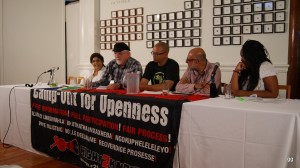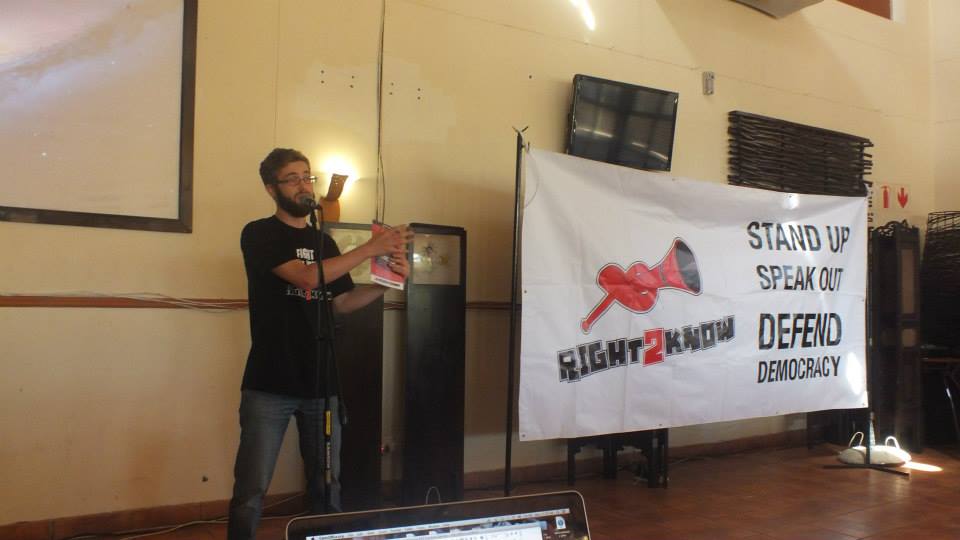R2K Western Cape hosted an open dialogue on Freedom of expression: Je Suis Charlie?

The Panellists: Reporter and writer Zubeida Jaffer, veteran journalist Terry Bell, cartoonist Brandan Reynolds, Muslim Views editor Farid Sayed and Karabo Rajuili (Programme Director)
The murder of 10 journalists in Paris at the Charlie Hebdo offices in a targeted attack has highlighted the fragile existence of journalists and cartoonists in the world today. Freedom of expression is one of the cornerstones of a vibrant democracy, and one in South Africa which has been hard won.
Nevertheless, like all rights under the constitution, freedom of expression is not absolute and has its limitations. At the public discussion on Wednesday evening hosted by the Right to Know in Cape Town, the panellists (Reporter and writer Zubeida Jaffer, veteran journalist Terry Bell, cartoonist Brandan Reynolds and Muslim Views editor Farid Sayed) explored where those limitations may lie. Key questions were raised that highlighted just how complex the issue is:
• What is the role of the journalist? Is it to help society understand the issues it confronts? Is it to get closer to a “truth”? Is it to give a voice to the voiceless?
• How is the journalist’s own world-view represented in their work? Does the right to freedom of expression include the right to offend, to vilify? How far can one person’s freedom of expression go before it tramples on the right to dignity of another?
• What are the limits of ‘humour’, especially with satirists or lampoonists? Where does satire slip into replicating discriminatory stereotypes and then fall into perpetuating structural inequalities in society?
• What role does ownership of the media play in the choices of which stories to run or the angle of the story that is projected? Similarly, what role do editorial choices play in the presentation of a story – and what intention or worldview informs those choices? What responsibilities do they have in deciding to publish – or not to publish?
The murder of 10 French journalists can never be justified or condoned. Neither can the targeted killing of 17 journalists in Gaza during the Israeli bombardment in 2014 or the public flogging of a blogger in Saudia Arabia. In 2014 66 journalists were killed and 119 abducted. Since 1992, 734 journalists have been murdered.
Our response to the Charlie Hebdo murders must take into account the context – local and international – in which they occurred. Beyond the easy narrative of mad Muslims, deranged jihadists and the dangers that those “others” coming to “our” country and endangering “our” way of life, we need to ask who benefits from such an act? Which political powers triumph? Which commercial interests benefit? Which social forces become more entrenched? Exercising our freedom of expression is an intensely political act; one that cannot be divorced from our context; and one that must be exercised consciously.



